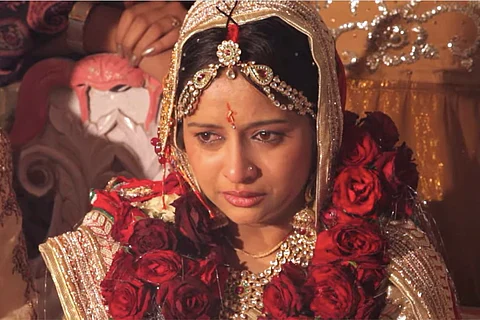

“All my friends are married, only I am left.” — Dipti
Three years before the widely-watched documentary Indian Matchmaking premiered on Netflix, director Smriti Mundhra and fellow director Sarita Khurana were chronicling the lives of three women in India who were trying to fulfill the ultimate goal of their parents — to get married. The 2017 documentary, A Suitable Girl, now pops up as a recommendation following the release of Indian Matchmaking, which follows Mumbai’s top matchmaker Sima Taparia as she tries to find eight consenting adults their perfect match.
The one-hour-33-minute A Suitable Girl follows three women in India over a period of four years — a fun-loving MBA graduate Amrita whose love marriage takes her miles away from her home to a Rajasthan village; Dipti, a school-teacher in Mumbai, who has faced rejections over her looks and weight, and Indian Matchmaking star Sima Taparia’s own daughter Ritu, an MBA graduate working with Ernst and Young in Mumbai.
While Indian Matchmaking weaves in humour to show the cracks and superficiality of the business of matchmakers in the arranged marriage industry, A Suitable Girl is a more sobering and emotional watch. It is a straightforward documentary that speaks of the pressure society exerts on the families of young Indian women who inch towards what's considered their marriageable age.
The documentary begins with a short montage of all the three women as babies and the very gloomy sentence by Sima — “As soon as a girl is born, it is understood that she has to get married one day or the other. She has to leave her parents. That is Indian culture.”
We watch morosely as Dipti blows out her birthday candles with one wish — to get married before the next year, as she attends a local ‘swayamvar’ where potential grooms are displayed as items for auction for the woman's parents to approve. We watch MBA graduate and ‘first to be working from her family’ Amrita as she begrudgingly settles into a conservative family and resigns to the fact that she will mostly be known as Keshav’s wife. We see ambitious Ritu as she — to keep her mother’s reputation as an excellent matchmaker — marries a man who wishes that he's reborn as a European so he could marry a European woman.
While Indian Matchmaking has a lighthearted tone, with the editing and background score sometimes gently mocking what's being said on screen, the 2017 film is far more hard-hitting in how it chronicles the lives of these women. It speaks of the Indian middle classes and the working women among them as they balance their career graph with the ultimatum of marriage.
“You lose your identity when you get married,” Amrita says sadly at the end of the documentary, as her terrified face from her wedding day comes rushing to you as a flashback. “They just recognise me as Keshav’s wife. I do have a name, you know.”
You’re left empathising with the women because of the constant need to uphold conservative and patriarchal traditions, of society’s conditioning that an unmarried woman is an unsuccessful and incomplete woman. The film ends with another montage that shows what happened to these women later, and while these brief notes may very well define happiness for a woman in Indian society, they're very much within patriarchal traditions.
Views expressed are author's own.